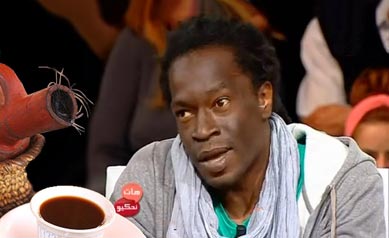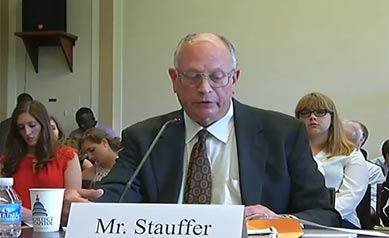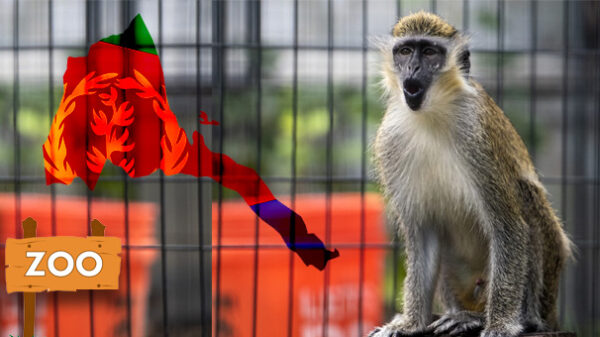A political Tsunami
 A Tsunami of popular upheavals has hit the region and on its way it has swept two of the most brutal and deeply entrenched dictatorial regimes: Bin Ali of Tunisia and Mubarak of Egypt. Others will hopefully follow them soon, Inshaa Allah. The unabated waves are still spreading over, shaking the foundations of many regimes among which are Yemen and Libya that are rocking under the pressure of the popular upheavals; they are on the verge of tumbling over. These events have unfolded in front of our eyes, day in and day out, in very dramatic, breathtaking developments. The uprisings has involved non-traditional forces, the vigorous youth sector that is hooked to the internet’s social media turning their virtual plans into tangible reality of mass demonstrations. That media enabled the accomplishment of the task that was raised in the slogans: ‘the people want to overthrow the regime.’ That was accomplished in record times to the extent that it took the world by surprise—even the most sophisticated intelligence agencies. When the White House Press secretary was asked if the CIA knew about what was going on in Tunisia and Egypt before the uprising, he replied, “If you are asking me whether we knew if a fruit seller in Tunisia would set himself on fire and spark these uprisings, I would say, we did not.”
A Tsunami of popular upheavals has hit the region and on its way it has swept two of the most brutal and deeply entrenched dictatorial regimes: Bin Ali of Tunisia and Mubarak of Egypt. Others will hopefully follow them soon, Inshaa Allah. The unabated waves are still spreading over, shaking the foundations of many regimes among which are Yemen and Libya that are rocking under the pressure of the popular upheavals; they are on the verge of tumbling over. These events have unfolded in front of our eyes, day in and day out, in very dramatic, breathtaking developments. The uprisings has involved non-traditional forces, the vigorous youth sector that is hooked to the internet’s social media turning their virtual plans into tangible reality of mass demonstrations. That media enabled the accomplishment of the task that was raised in the slogans: ‘the people want to overthrow the regime.’ That was accomplished in record times to the extent that it took the world by surprise—even the most sophisticated intelligence agencies. When the White House Press secretary was asked if the CIA knew about what was going on in Tunisia and Egypt before the uprising, he replied, “If you are asking me whether we knew if a fruit seller in Tunisia would set himself on fire and spark these uprisings, I would say, we did not.”
It was a crush program that availed itself free for all, a real opportunity for live practical lessons on how popular revolutions could be brought about and managed, and how people can rewrite their history. It was a valuable experience and open book for all concerned to learn and draw lessons from. Let me solute and congratulate the peoples of Tunisia and Egypt for this unprecedented popular, non-violent uprisings that successfully accomplished the overthrow of the dictatorial regimes and express my sympathy and solidarity with the people of Yemen, Libya and others who are struggling to get rid of the incumbent regimes suppressing them, and depose the die hard despots despite the harsh resistance they put in their futile attempts to abort these revolts.
An important questions has to be posed: how can we relate the current developments to our situation and what lessons can we learn and deduced from them? How can we use these lessons to revitalise, rectify and accelerate the process of the democratic change we aspire to achieve?
As far as I remember, past events in the Arab World have influenced the public opinion particularly, in the Eritrean lowlands to various extents. The late fifties and sixties victorious military revolutions in the Arab countries had inspired the Eritrean students and politicians in exile, and prepared the moral ground for other citizens to launch the armed struggle in the lowlands. Even the Arab defeats, like the 1967 war between these countries and Israel, which I vividly recollect and lived through, had its impact on the moral of the general lowland population. For many in the lowlands, it was not seen as a struggle between Arabs and Israelis but it was a struggle of the Palestinian peoples for justice and freedom of their homeland. It was a struggle supported by all freedom and peace loving people in the world on the one side and Israel supported by imperialism on the other.
In those times, I had a teacher from Asmara who was young, intelligent, politically conscious and ardent supporter of the ELF. I liked him for these rare qualities at the time and respected him very much, but when the 1967 Middle East war broke out, to my great dismay and surprise I found him strongly supporting Israel and was even jubilant that the Arabs were defeated. I couldn’t comprehend and reconcile his support of Israel, the country that trained and equipped the Commandos that fought the ELF vis-à-vis his engagement and support of the ELF and the armed struggle simultaneously. This was not an isolated phenomena to overlook but a typical reaction of how our people were aligned as pro and anti Israel on that war purely along religious cleavage and bias probably instilled by Haile Selassie regime’s propaganda effect envisaging Israel as an ally, a very close friend of Christians and the Arabs as arch enemy who had been trying to invade Eritrea and snatch it from the warm lap of mother Ethiopia by assisting the ‘bandits’ the ELF. Hoping that we left gloomy past behind us for good, and expecting long years of the struggle, the people’s close interactions with the region and its people had dissipated such unfounded fears and bias. I expect the influence of the current popular revolutions in the region would certainly have a more receptive environment across our society.
That is a fact well acknowledged by the regime that fears the consequences and in an attempt to prevent, or minimize its effects, the regime has banned the watching of satellite TV channels in public areas, but the people still find ways to bypass these hurdles—they manage to remain well informed about the current events. A colleague of mine who recently returned from Asmara recounts an incident where some young people were sitting at a bar and discussing the events in Libya when security personnel rounded then up and arrested them. They took them away despite their pleas that they did not talk about events in Eritrea. The regime is getting nervous as it is well aware it cannot completely isolate the people; the world has become a global village and the uprisings are creeping nearer to Eritrea by the day. It has already reached the tyrant’s doorsteps, a stone throw across the Red Sea, Yemen.
The uprisings that have succeeded to depose the heads of the regimes in the different countries are not identical, as each country has its unique characteristics but they have many common features that are of interest to us and we need to focus on them.
These revolutions are initiated and led by youth who are well educated, IT literate, mostly unemployed, disenchanted and alienated from the political life led by either the traditional oppositions or the ruling parties.
Like in most of the Third World, the youth in these countries constitutes more than 50% of the total population. The ousted regimes had ruled for too long, most of them for over 30 years—that is more than the average age of the youth generation of today. Even though some of these countries are formally considered republics, and they stage elections from time to time, and had adopted multi party systems, the final poll results are mostly predetermined, rigged to sum up to 99.99 % votes in favour of the ruling party—though in our case, that is considered a luxury.
There was a political joke cracked about the Egyptian elections under Mubarak: a man went to the poll station to cast his vote for the presidential election and chose to vote No to Mubarek. Shortly after thereafter, friends advised him to retract before the security trace him. Then he returned to the polling stations, “Sorry I made a mistake and voted No when I had intended to vote Yes.” They replied calmly, “Don’t worry, we read what was in your mind and changed that to yes vote for Mubarek on your behalf, but mind you, do not make such a mistake again.”
Presidents are there to stay for life, in addition they had arrangements to pass the presidential post to their children as an inheritance by changing the constitution with the tacit approval of their rubber stamp parliaments.
The combined effect of corruption, unemployment, economic underdevelopment, impoverishment and denial of basic human and democratic rights imposed by the tight security grip has rendered life intolerable and not worth living for the majority including the youth. It is so frustrating that the situation left no beam of hope for the future of the population. The matter forced the youth to challenge this situation by resorting to non traditional, innovative means. They mass-mobilised and agitated the population by utilizing excellent techniques that outsmarted the security forces’ suppressive measures and watchful eyes. Through their effective utilisation of internet’s social media they organised themselves, propagated their ideas, mobilised and directed the demonstrations to achieve their ultimate goals. They faced the wrath of the regimes bare handed and with unflinching bravery, persistence and resilience. They stood fast and didn’t yield or back off despite the heavy injuries that was inflicted on them; and that made them more resolute and defiant. As the uprisings gathered momentum, they dared to raise the bar of their demands for more reforms and finally demanded complete regime change. The security forces that were well trained to effectively crack down traditional resistance forces, had failed this time even though they unrestrainedly used all the power of coercion at their disposal to crush the peaceful but resole demonstrations. The demonstrators not stood their grounds, but they became robust in their resistance and grew up with time—both in size and coverage and finally forced the security forces to break up, and the national armies to side with the people, and the regimes to crumble.
The revolutions in the different countries were not an easy beach stroll. Many sacrifices have been paid and several times it came very close to failing. It was a tight rope walking, full of uncertainties—at times it advanced and at other times retreated. That suspension even caught with Television spectators who lived the tense days. But thanks to their persistence, the youth managed to maintain the balance and steadfastly marched towards their target.
Tunisia was the epicentre of the waves of revolutions that started as small ripples caused by a local incident which gathered momentum as they spread further building up into formidable power that finally generated the Tsunami of revolutions that is currently sweeping across the region. The tremors and reverberations of which are still causing damages and shaking the corrupted regimes’ foundations in almost all the Arab countries, thus heralding the era of popular revolutions in the region.
In next follow up article I’ll write about specific revolutions and the lessons that we can draw and learn from.




Awate Forum